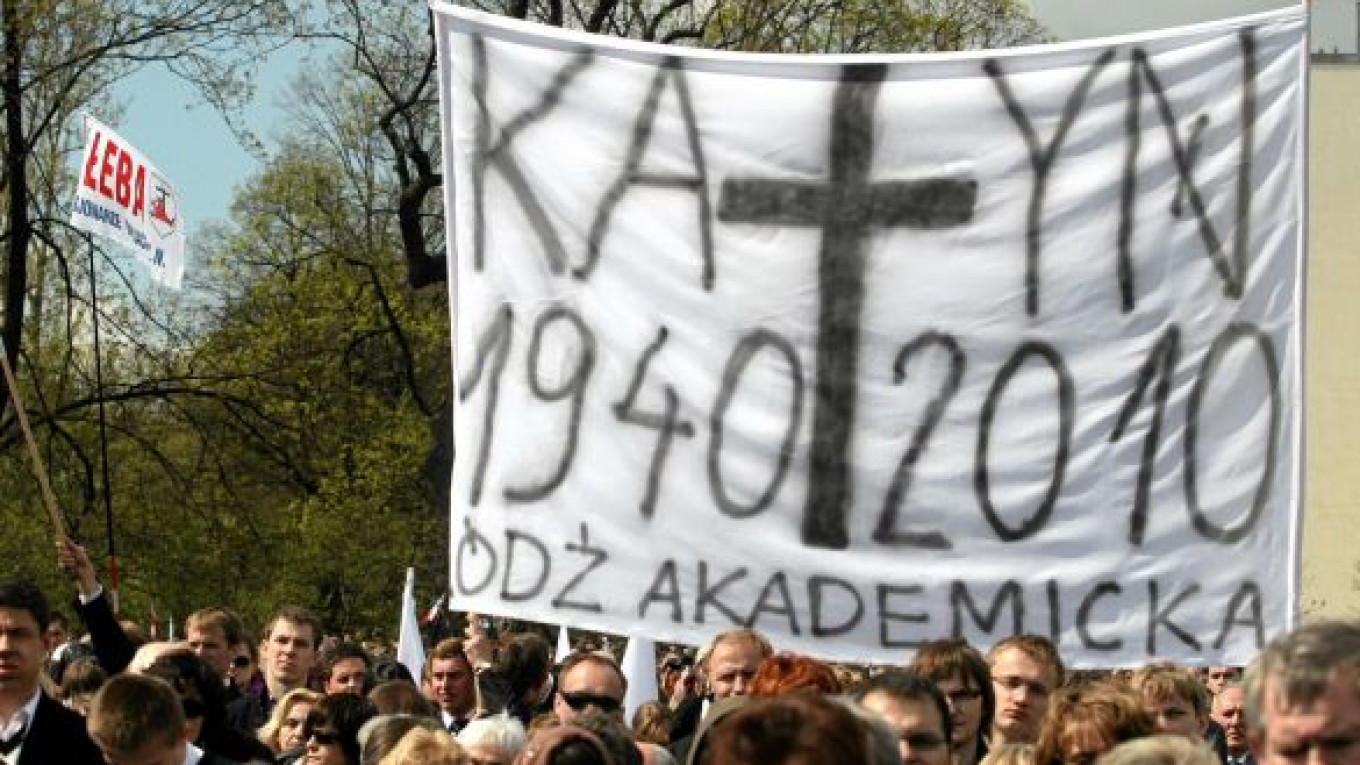The human rights group Memorial has cleared an initial hurdle in its legal fight to declassify documents on a 1940 massacre of Polish officers by Soviet secret police that still divides Russia and Poland.
The Supreme Court has ordered the Moscow City Court to consider an appeal in which Memorial sought to force the authorities to declassify a 2004 decision by military prosecutors to drop an investigation into the Katyn massacre.
A Memorial leader, Yan Rachinsky, said the ruling could lead to a court decision to open up secret documents about the killings of thousands of Polish officers in the Katyn forest in the Smolensk region. Poland also wants the documents declassified.
The ruling comes amid signs that long-standing tensions between Russia and Poland are easing following the death of Polish President Lech Kaczynski and 95 others when their plane crashed en route to a commemoration ceremony at Katyn on April 10.
"The Moscow City Court will now be obliged to return to this case," Rachinsky said Wednesday.
It could eventually rule "to drop the 'classified' tag, making the files available to historians, journalists and — what is more significant — the relatives of [the officers]," he said.
"Beyond all doubt, this would be of colossal importance for Russian-Polish ties. … This would allow us to develop this recent glimpse of hope in our relations into a stable and friendly partnership," Rachinsky said.
Supreme Court spokesman Pavel Odintsov said the Moscow City Court's rejection of Memorial's complaint last year was "premature."
There are 183 volumes of documents relating to the 1990-2004 investigation, and 116 volumes of them are still closed.
Rachinsky said it would take up to six weeks for the court to take up the issue.
Kaczynski, his wife and 94 others, mostly senior Polish political and military officials, died when their plane crashed near the city of Smolensk as they headed to Katyn to mark the 70th anniversary of the massacre.
Attending Kaczynski's state funeral on Sunday, the leaders of Poland and Russia said his death must serve as a catalyst for reconciliation between the two Slavic nations.
For nearly half a century, Moscow had tried to blame Nazi Germany for the Katyn massacre, which symbolizes the killings of some 22,000 Polish officers and intellectuals.
It was not until 1990 that the last Soviet leader, Mikhail Gorbachev admitted that Stalin's NKVD secret police, precursor to the KGB, had been responsible.
In 2004, Russia's chief military prosecutor dropped the criminal investigation into the Katyn massacre, and the decision was ordered classified. Poland demands the opening of archives related to the case and the official rehabilitation of the victims.
A Message from The Moscow Times:
Dear readers,
We are facing unprecedented challenges. Russia's Prosecutor General's Office has designated The Moscow Times as an "undesirable" organization, criminalizing our work and putting our staff at risk of prosecution. This follows our earlier unjust labeling as a "foreign agent."
These actions are direct attempts to silence independent journalism in Russia. The authorities claim our work "discredits the decisions of the Russian leadership." We see things differently: we strive to provide accurate, unbiased reporting on Russia.
We, the journalists of The Moscow Times, refuse to be silenced. But to continue our work, we need your help.
Your support, no matter how small, makes a world of difference. If you can, please support us monthly starting from just $2. It's quick to set up, and every contribution makes a significant impact.
By supporting The Moscow Times, you're defending open, independent journalism in the face of repression. Thank you for standing with us.
Remind me later.


